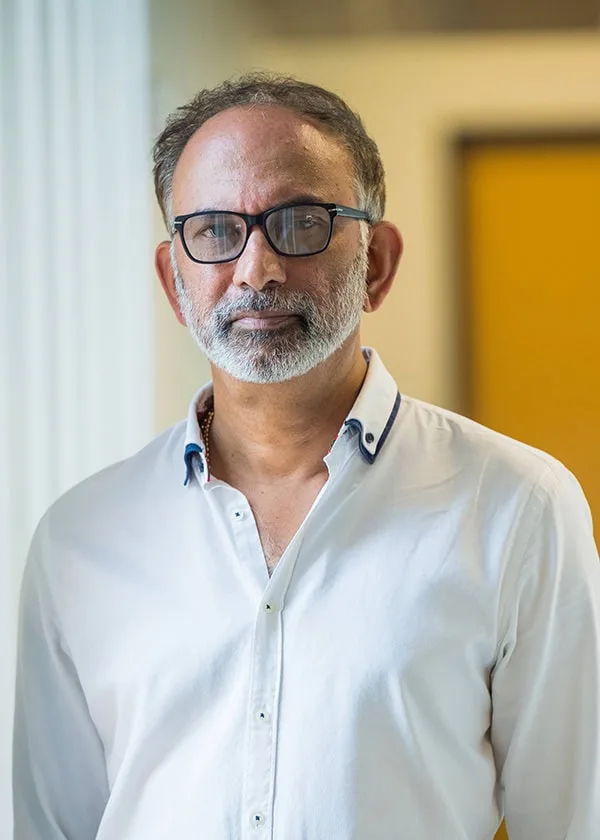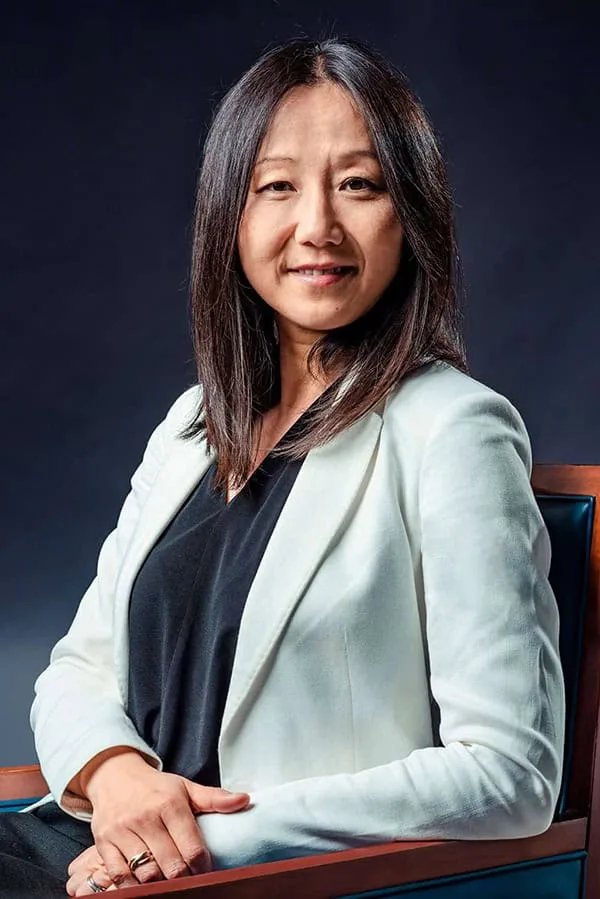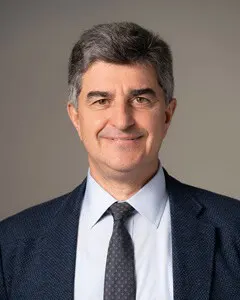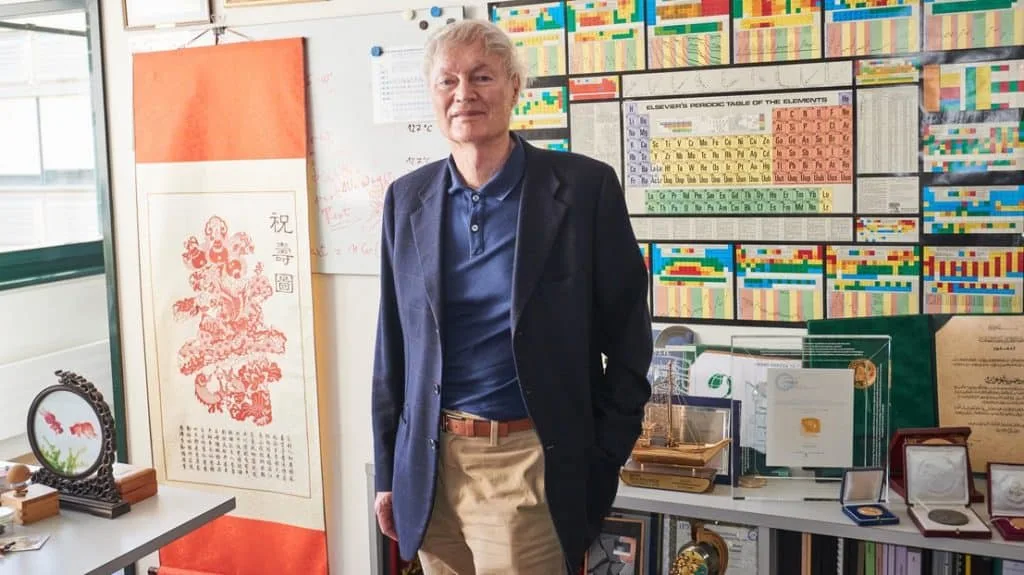Materials Today Innovation Awards
Materials science is one of the fastest-growing scientific fields and plays a key role in shaping modern technology across all areas of 21st-century life:
In energy, advanced materials improve the performance and durability of solar panels, batteries, fuel cells, and energy storage systems, supporting the shift toward renewable energy and sustainable technologies.
For electronics, development of semiconductors, nanomaterials, and advanced alloys enables faster, smaller, and more energy-efficient devices like smartphones, computers, and quantum processors.
In healthcare, biomaterials are used in implants, drug delivery systems, tissue engineering, and diagnostic devices, improving patient outcomes and enabling personalized medicine.
The Materials Today Innovation Award honors outstanding leaders who have propelled the field forward through groundbreaking research and visionary ideas. This award recognizes researchers whose monumental work has opened new areas of study and led to practical, impactful applications that advance both science and society.
Nominations are now closed.
We will open nominations soon for the 2026 Materials Today Innovation Award to recognize candidates who have made "monumental" contributions to materials science—work that has opened significant new research fields and led to impactful, practical applications. We will welcome nominations of established and recognized individuals whose innovations in materials science have made, or are expected to make, a major positive impact on society.
Winners
2025: Zhong Lin Wang
Zhong Lin (Z.L.) Wang is a Regents’ Professor at Georgia Tech and Director of the Beijing Institute of Nanoenergy and Nanosystems. He holds a Ph.D. in Physics from Arizona State University and a B.S. from Xidian University. Renowned for pioneering nanogenerators, self-powered sensors, and piezoelectronics, he has authored over 2,000 publications and holds more than 200 patents. His awards include the 2023 Global Energy Prize and the 2019 Albert Einstein World Award of Science. He is a fellow of multiple prestigious organizations and the founding editor of Nano Energy.
"I envision a future where our self-powered systems become seamlessly and invisibly integrated into the very fabric of our lives: in smart cities that monitor their own health, in soft robotics that can sense and power their movements, and in personalized medicine through implantable, lifelong medical devices that never need battery replacement. The grand goal is to catalyze a new technological revolution centered on distributed, sustainable power, ultimately creating a world where energy is harvested from our ambient environment, not just generated from centralized plants, empowering a truly sustainable and intelligent society."

2024: Pulickel M. Ajayan
Pulickel M. Ajayan is a Professor and the Founding Chair of the new department of Materials Science and NanoEngineering at Rice University. Professor Ajayan was awarded the 2024 Materials Today Innovation Award for his exceptional contributions to the field of nano-engineered materials.
We are excited about how advanced materials can impact future technologies. Specifically, I am enthusiastic about our progress in understanding the fundamental structure-property correlations in nanomaterials. Nanomaterials can serve as crucial units in developing complex, multifunctional architectures. It is often said that those who control materials control technology, and this is true for much of what we do in our research.

Pulickel M. Ajayan
2023: Chad A. Mirkin
Chad A. Mirkin is the Director of the International Institute for Nanotechnology (IIN); George B. Rathmann Professor of Chemistry, Medicine, Materials Science & Engineering, Biomedical Engineering, and Chemical & Biological Engineering at Northwestern University. Professor Mirkin was awarded the 2023 Materials Today Innovation Award for his field-defining contributions to nanotechnology at the interface of materials science.
Our goal is to continue driving innovation at the intersection of chemistry, engineering, medicine, biology, and materials science, to develop technologies that not only advance our understanding of the nanoscale world but also have a tangible impact on people's lives.

Chad Mirkin
2022: Zhenan Bao
Zhenan Bao is a K.K. Lee Professor of Chemical Engineering, Chair of the Department of Chemical Engineering, and by courtesy, Professor of Chemistry & Professor of Materials Science and Engineering at Stanford University. Professor Bao was awarded the 2022 Materials Today Innovation Award for her contributions to the development of flexible organic electronics and for revolutionizing human machine interactions, including non-invasive health monitoring and stimulating devices.
Soft electronic sensors and integrated circuits with skin-like properties may fundamentally change the way humans interact with electronic devices...We believe skin-like electronics will reduce the distance between electronics and the human body to allow us sense information directly relevant to human health.

Zhenan Bao
2021: Yury Gogotsi
Yury Gogotsi is the Director of the A.J. Drexel Nanomaterials Institute and a Distinguished University and Charles T. and Ruth M. Bach Professor of Materials Science and Engineering at Drexel University. Professor Gogotsi was awarded the 2021 Materials Today Innovation Award for his pioneering work in the new field of MXenes and the development of novel carbon-based materials.
When we discovered MXenes, it became clear from the beginning that this material family was going to grow quickly because of their many possible structures and an almost infinite number of compositions...This chemical and structural diversity allows for unprecedented property tunability, as well as continuous tuning of physical properties using solid solutions.

Yury Gogotsi
2020: Michael Grätzel
Michael Grätzel is a Professor at Ecole Polytechnique Fédérale de Lausanne (EPFL) where he directs the laboratory of photonics and interfaces. Professor Grätzel was awarded the 2020 Materials Today Innovation Award for his ground-breaking work on solar energy conversion, including his discovery of molecular photovoltaics, being the first to conceive and realize mesoscopic photosystems based on molecular light harvesters that convert light very efficiently to electricity.

Michael Grätzel
2019: Russell D. Dupuis
Russell D. Dupuis is the Steve W. Chaddick Endowed Chair in Electro-Optics and Georgia Research Alliance Eminent Scholar in the School of Electrical and Computer Engineering at Georgia Tech with a joint appointment in the School of Materials Science and Engineering. Professor Dupuis was awarded the 2019 Materials Today Innovation Award for taking metalorganic chemical vapor deposition (MOCVD) from a novel lab-scale fabrication technique developed by Harold Manasevit, to the primary commercial tool for mass-producing LEDs and a vast array of other semiconductor devices.
In a paper I published in 1977, I predicted that (MOCVD) which at the time, used a two-inch diameter single substrate would be eventually be scaled to 200 square inches of epitaxy per run. Somewhere around 40 years later, we reached 300 square inches of epitaxial material per run, and it’s larger now.

Russell D. Dupuis
2018: M. Stanley Whittingham
M. Stanley Whittingham is a Distinguished Professor of Chemistry; Founding Director; Director; Chief Innovation Officer, R and D Pillar Lead at Binghamton University. He is additionally a Nobel Laureate in Chemistry (2019). Professor Whittingham was awarded the inaugural 2018 Materials Today Innovation Award for his monumental contributions to the development of lithium-ion batteries that power today's smartphones, laptops, drones, electric vehicles and more.
Stan was the first to study lithium ion intercalation and developed the first prototype of rechargeable intercalation-type lithium battery in the 1970s. His pioneering research discoveries transformed energy storage technology and impact almost everyone on the planet.
- Gleb Yushin, Co-Editor in Chief of Materials Today

M. Stanley Whittingham